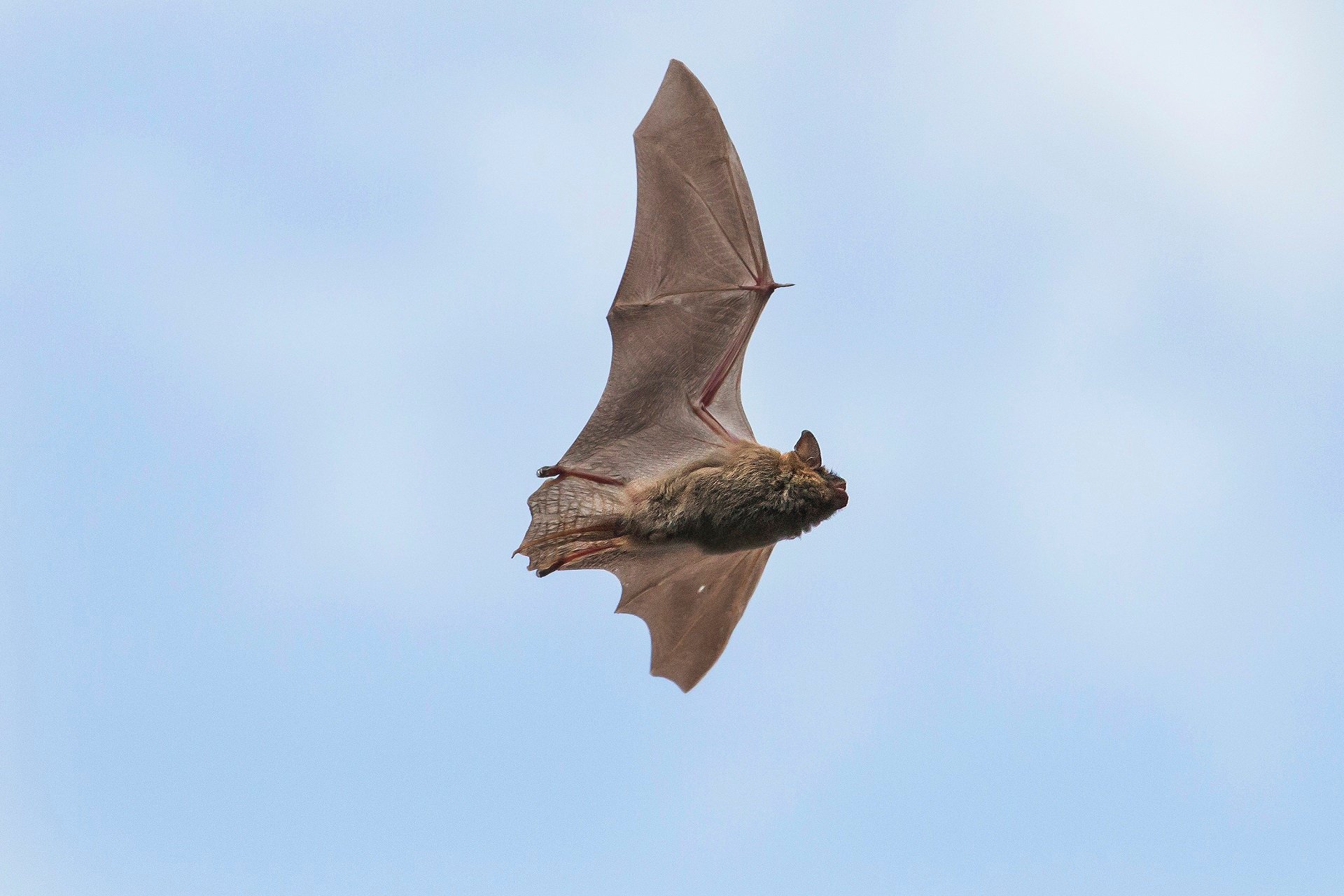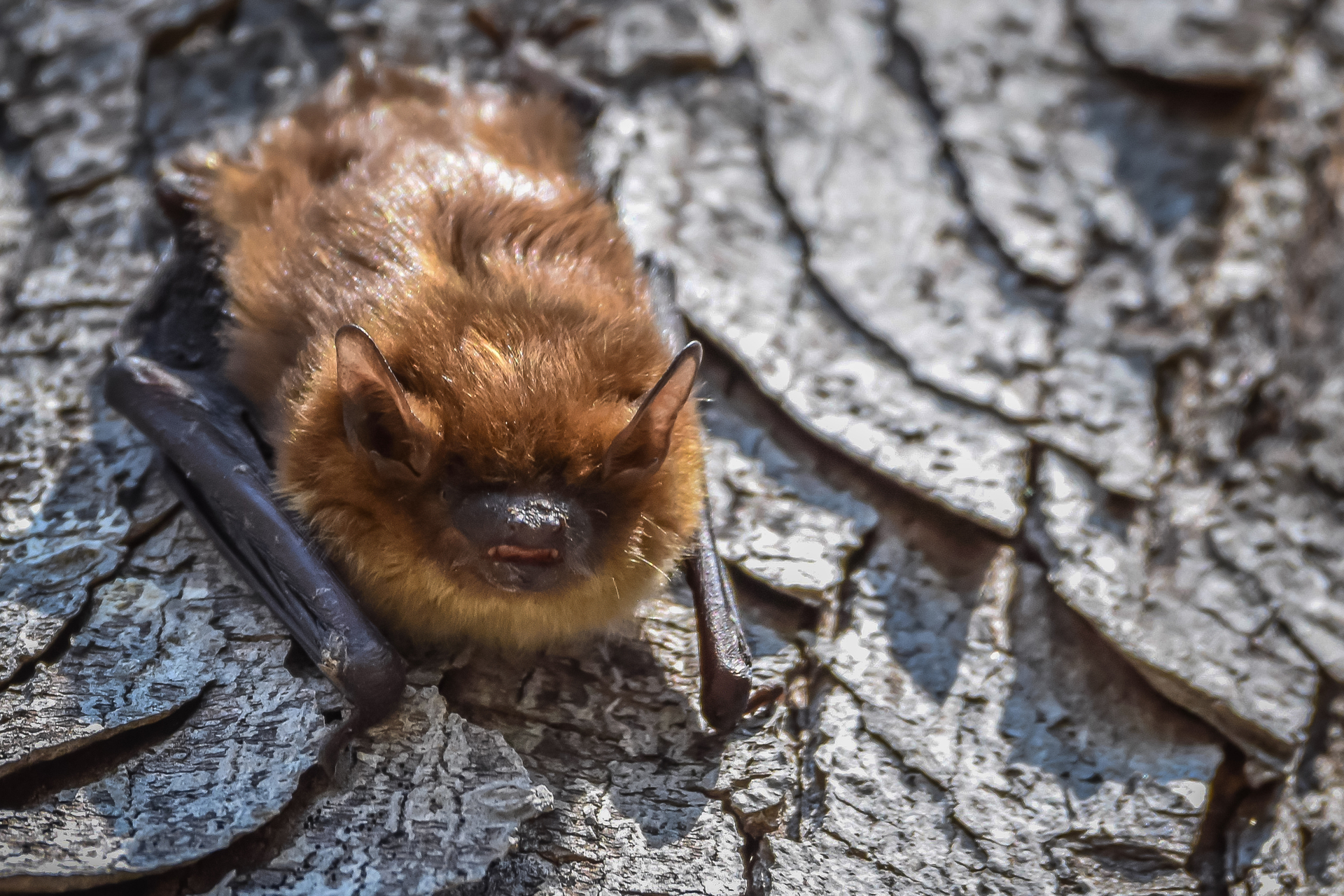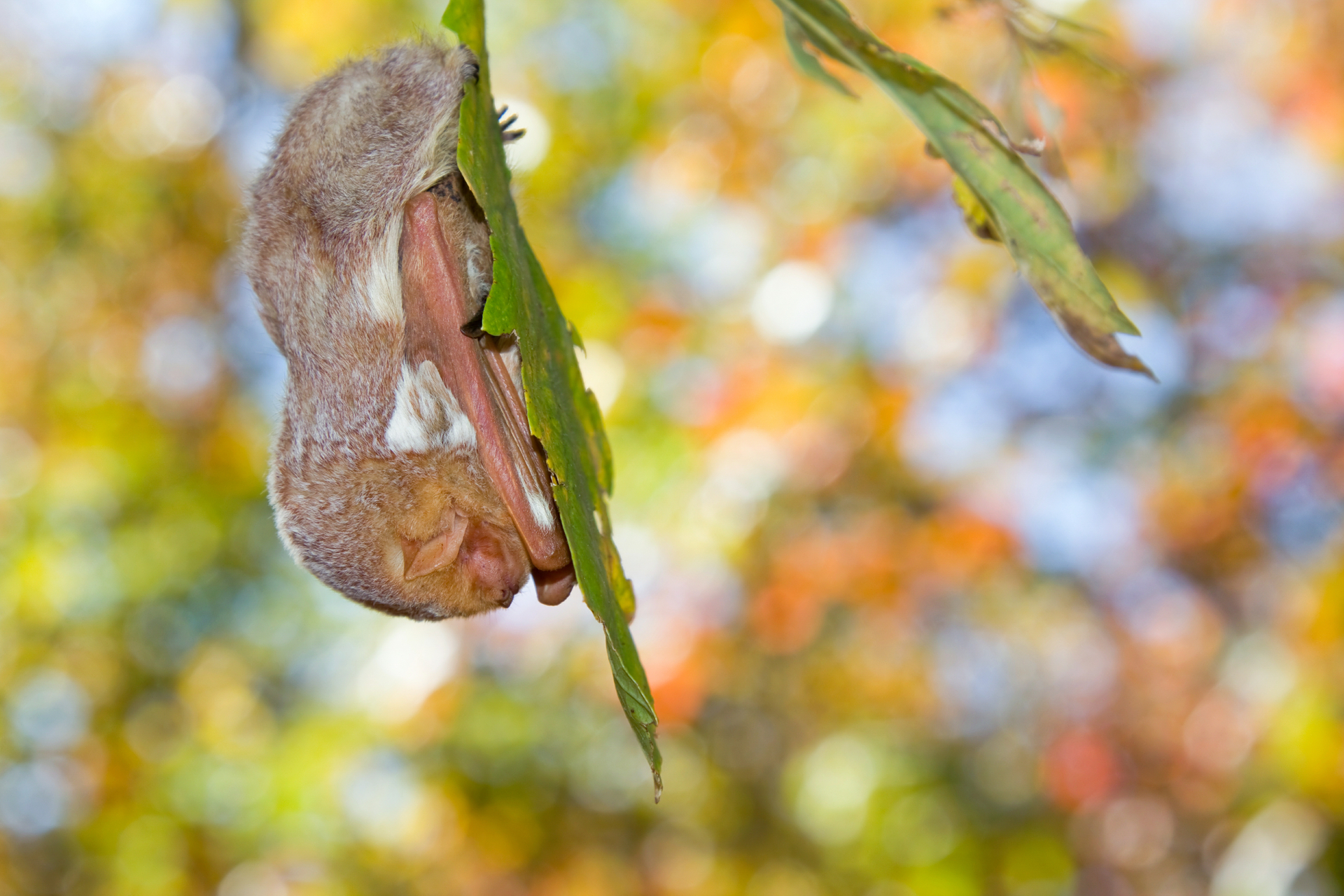Answer the Bat Signal: Why Bats Deserve Your Appreciation
April 15, 2025
If you’re picturing blood-sucking vampires or spooky movie scenes when you think of bats, you’re missing the bigger picture. These misunderstood mammals play a vital role in ecosystems—including right here in Massachusetts—and they’re a lot more fascinating than fearsome. In fact, these essential nocturnal allies support nature and benefit people every single night.
Read on to clear up some myths, explore what makes bats extraordinary, and find out a few easy ways you can help these unsung heroes.
Bats Aren’t Blind—They’re Brilliant Navigators
You’ve probably heard the phrase “blind as a bat,” but bats can actually see quite well. Their use of echolocation, a built-in sonar system, helps them navigate and hunt in complete darkness. By emitting high-frequency calls and listening to the echoes that bounce back, bats can pinpoint the size, shape, and speed of nearby objects with stunning accuracy. So, while they aren’t blind, they do have extra abilities to support their navigation in low light areas.
Bats’ Unique “Hand Wings”
Bats belong to the order Chiroptera, which means “hand-wing”—and the name fits. A bat’s wing is made of two thin layers of skin stretched over elongated finger bones, giving them incredible control and agility in the air. Unlike birds, which flap their entire forelimb, bats can fine-tune their flight with finger-like precision, allowing them to hover, dive, and twist midair to catch tiny insects.
From Gothic Fiction to Superhero Status
Bats have inspired everything from vampire legends to comic book icons. While these pop culture portrayals often emphasize fear or mystery, they reflect just a sliver of the truth. Yes, a small number of bats feed on blood—but none of those species live in or near Massachusetts. The vast majority of bats eat insects, fruit, or nectar, and pose little to no threat to humans. It’s time to trade the myths for facts—and appreciate bats for the real-life heroes they are.
Natural Pest Patrol
Bats are among the most efficient insect eaters on the planet. A single bat can eat 600-1,200 mosquitoes, moths, and other flying insects in just one hour. This natural pest control helps reduce the need for chemical pesticides and supports healthier ecosystems (as well as more comfortable backyard evenings). You can attract bats to your yard by fostering healthy bat habitat, which includes growing native insect-attracting plants and omitting the use of pesticides.
Local Bats Feel the Pressure
Nine bat species call Massachusetts home, including the familiar Little Brown Bat (Myotis lucifugus) and Big Brown Bat (Eptesicus fuscus). Sadly, five species face endangerment or special concern status as habitat loss, climate change, and the spread of White-nose Syndrome—a devastating fungal disease—continue to shrink populations across North America. Supporting bats means protecting an important part of our state’s biodiversity and balanced ecosystems.
Be a Bat Advocate
Bats don’t ask for much—but they give us a lot in return. Whether you’re a gardener looking to cut down on pests or a nature lover eager to protect local wildlife, bats are worth your attention and appreciation. To support local bats, consider:
- Fostering healthy bat habitat by growing native insect-attracting plants and omitting the use of prophylactic pesticides. While bat boxes require very specific needs to successfully attract bats—including height and location requirements—you may find bats taking respite in open sheds, barns or uninsulated attics, snags and caves, or overhangs. Get tips for coexisting with bats
- Avoid possibly spreading White Nose Syndrome by cleaning off your shoes and gear before and after entering caves and other bat habitats.
- Sharing the good news about bats’ importance to friends and neighbors. Inspire young naturalists to stick up for bats with this educational activity page.
Let’s give bats the credit they’re due—for their ecological superpowers, their captivating adaptations, and the quiet, vital work they do every night.
Upcoming Programs on Bats
See AllNighttime Noises
-
Wachusett Meadow Wildlife Sanctuary, Princeton
-
Saturday, April 19
7:00-8:30pm
Families - children 6 - 14 years
Bats: Discover these Night Flyers
-
Boston Nature Center and Wildlife Sanctuary, Mattapan
-
Saturday, May 3
6:30-8:00pm
Families - children 4 - 12 years
All About Bats!
-
Brewster's Woods Wildlife Sanctuary, Concord
-
Friday, May 30
6:00-8:00pm
Adults & Families - 8 - 17
Stay Connected
Don't miss a beat on all the ways you can get outdoors, celebrate nature, and get involved.





